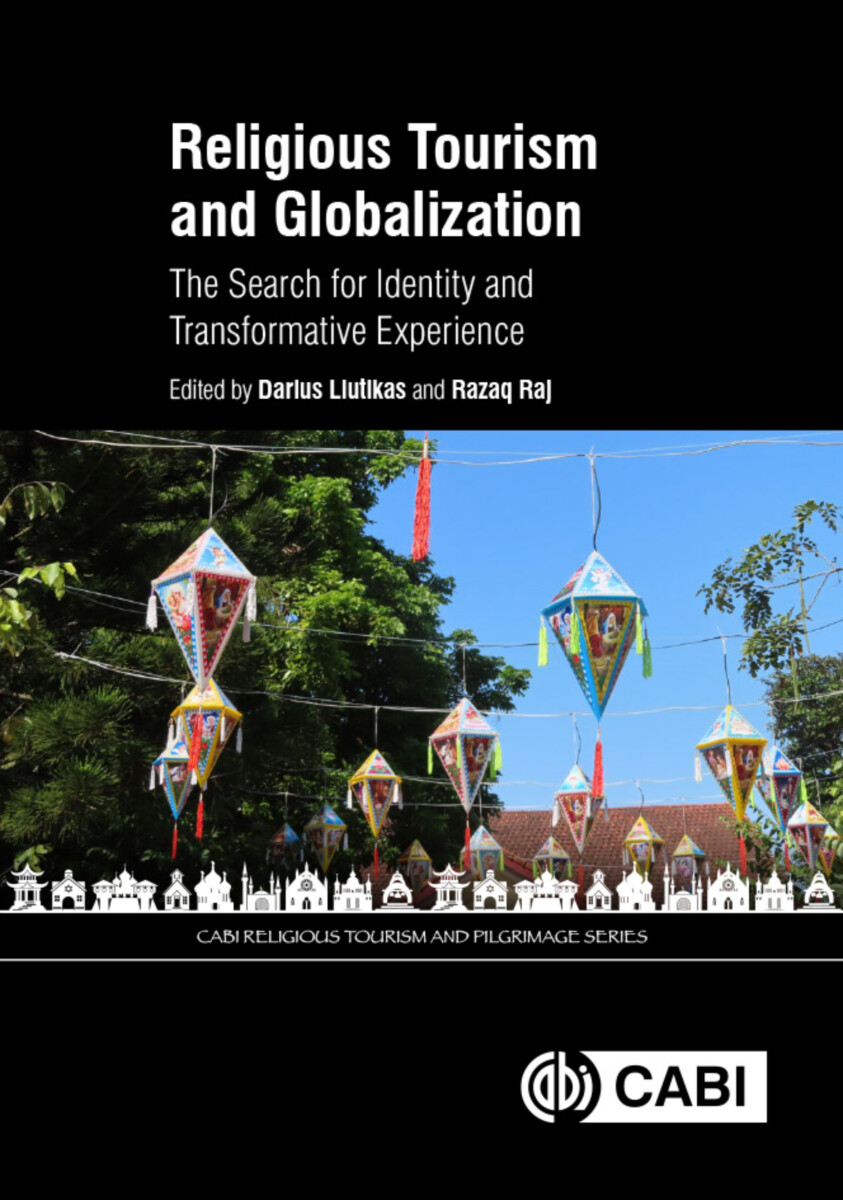Religious Tourism and Globalization
The Search for Identity and Transformative Experience
- Publisher
CABI - Published
8th April 2024 - ISBN 9781800623651
- Language English
- Pages 208 pp.
- Size 6" x 9"
Is it possible to identify the positive and negative effects of globalization on religious tourism or to estimate the transformation of the internal and external constructs of pilgrimage by these effects?
In order to address these questions, this book highlights the importance of the search for identity and transformative experience during religious tourism. It also looks at how, recently, globalization has played a part in the changes of the concept of personal and social identity and the transformative experience of pilgrimage.
The chapters, consisting of carefully selected case studies, analyze possible effects including the adoption of different new rituals, new pilgrims' values, changes of tradition, acceptance of technologic innovations, development of new business models, and other environmental and sociocultural changes. The book provides:
- a conceptual framework for understanding the impacts of globalization;
- integrated cross-disciplinary approaches; and
- an insight into major religious travel practices in the age of identity challenges and worldwide transformations.
Contributors
1. Introduction to Religious Tourism and Globalization: Challenges of Religious Tourism in a Global World
2. Globalization and Pilgrimages in the Roman Catholic Church
3. Religious Tourism after Globalization: Geopolitics, Deglobalization and its Considerations
4. Novels Promoting the Camino de Santiago
5. The Transformational Potential of Visiting Sacred Sites
6. Change from Within: Pilgrimage as a Method of Personal and Political Integration in Response to Crisis
7. Moving Pilgrimage into the Virtual Realm: Understanding the Advantages and Complexities of Immersive Technologies
8. A Global Turn? Pandemic ‘Virtual Pilgrimage’ and the Politics of COVID-19 in the UK
9. Religious Tourism Landmarks in Lebanon: Gigantism and Oversized Christian Pilgrimages Sites
10. In the Global Spotlight: Japanese Buddhist Destinations in Regional Areas
11. Pilgrims or Tourists? Visitors Seeking Out Experiences on Mount Athos
12. Experiencing the Passion Play: Case Studies from Germany, Slovenia and Greece
13. Seeking Identity and True Transformation: the Hajj Experience
14. Selling Spirituality: Examples of a Mixture of Faith and Commercialization of Religious Symbols
15. Preparing Students for Healing: Intersectional Approaches to Pilgrimage and Travel
Index
Darius Liutikas, PhD
Dr. Darius Liutikas has been a senior scientific researcher at the Lithuanian Social Research Centre (Vilnius) since 2009. His research interests include modern and traditional pilgrimage, sociology of tourism, anthropology of tourism, various forms of mobility, cultural tourism, sacred places and sacred spaces, and the geography of religions. Dr. Liutikas accomplished PhD studies in 2008 at Vilnius University. PhD thesis: "Traditional and modern pilgrimage as expression of values and identity in Lithuanian society.“ The author’s monograph about the manifestation of values and identity in the journeys was published in 2009 (in the Lithuanian language). He received the Grant for the Best Youth Scientist of Lithuania in the humanitarian and social fields in 2010 (Order No. 23 of 1 June 2010 of the Presidium of Lithuanian Academy of Sciences). Since 2008, he has published more than 30 articles in Lithuanian and international academic journals. He has prepared and published 5 books (3 in the Lithuanian language and 2 in English). He participated in more than 40 international scientific conferences as a guest speaker or speaker. In 2013, he received the best paper award at the International Conference on Religious Tourism and Tolerance in Konya, Turkey. Dr. Liutikas is a member of the editorial boards of the journal Creativity Studies (member of the editorial board since 2014), International Journal of Religious Tourism and Pilgrimage (member of the editorial board since 2015), International Journal of Research in Sociology and Anthropology (member of the editorial board since 2015). He is the chairman of the Community of Lithuanian Pilgrims (www.piligrimai.lt). He has initiated and coordinated different projects on pilgrimage and religious tourism. He has been the project coordinator of various books, as well as the project coordinator on the DVD Pilgrimage Places in Lithuania (In 2012, 55 min. in Lithuanian language. Subtitles in English, Polish and Italian), and the project coordinator for the biennial show-contest of Lithuanian woodsmen sculptures Saints and Pilgrims (since 2009).
Razaq Raj, PhD
Dr. Razaq Raj is Principal Lecturer in the Leeds Business School. His research interests include community events, outdoor events, economic impacts, religious tourism, cultural festivals and sustainable tourism, cultural diversity in events management and international tourism. Dr. Raj is the author of the textbooks Religious Tourism and Pilgrimage Management: An International Perspective, Event Management: An integrated and practical approach and Event Management and Sustainability. He is also a board member of international journals and academic associations. Editor of International Journal of Religious Tourism and Pilgrimage; International Journal of Islands Research; and International Journal of Islamic Tourism. Series Editor, CABI Religious Tourism and Pilgrimage Book Series.


